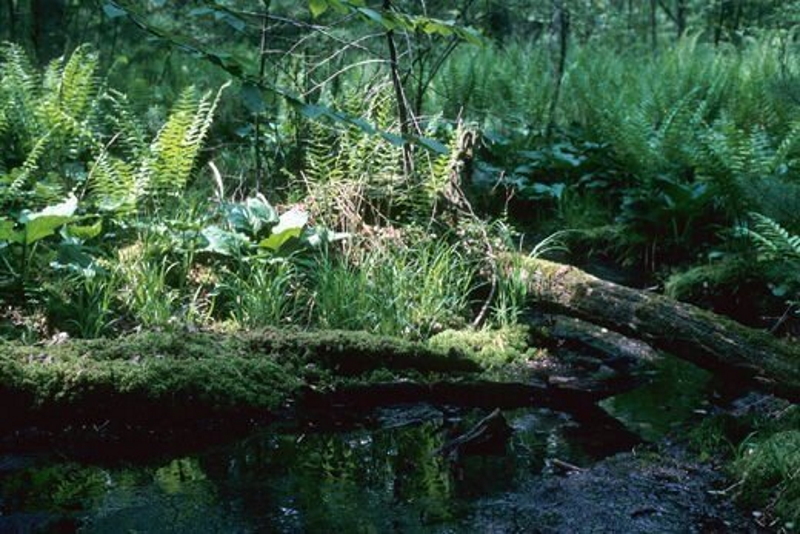State Supreme Court Blocks Destruction of Rare Wetland
A sand fracking company wanted to fill a wetland in Monroe County.
The Wisconsin Supreme Court won’t revive a sand fracking company’s permit to fill a rare wetland in Monroe County, ending five years of legal proceedings and handing a victory to the tribal nation and the environmental law firm that blocked the project.
On Wednesday the court turned down an appeal by Meteor Timber, based in Atlanta. The company hoped to reverse the rulings of two lower courts that had invalidated the company’s permit.
Despite the warnings, the Department of Natural Resources (DNR) granted the permit in 2017 under the administration of then-Gov. Scott Walker. The Ho-Chunk Nation and Midwest Environmental Advocates (MEA) challenged the permit in circuit court and a judge ruled the permit was invalid. In December, an appeals court affirmed the lower court’s decision and on Wednesday the state Supreme Court rejected Meteor Timber’s appeal of that ruling.
“Today’s ruling is a victory for the Ho-Chunk Nation, for Wisconsin, and for all those who value our natural resources and the public’s role in protecting them,” MEA staff attorney Rob Lee said. Conroy Greendeer, District 2 representative of the Ho-Chunk Nation, echoed the sentiment and stressed the importance of honoring nature and respecting its right to exist.
“This is a permit that should never have been issued in the first place,” said Evan Feinauer, staff attorney for Clean Wisconsin, “This company’s application to fill valuable wetlands did not meet the standards that every other business and individual must meet.”
Feinauer said the company had sought legislation that was “pushed through without notice or debate that would have exempted its project from the permitting process altogether” — a sign, he said, that Meteor Timber knew its proposal didn’t meet the required standards. The legislation ultimately failed, he added.
“Many laws and regulations have been enacted in an attempt to provide a minimum standard for humans to survive. If Ho-Chunk people had written the laws, we’d incorporate the rights of nature to thrive, not merely survive,” said Greendeer, who called the company’s permit application “clearly deficient.”
Despite the court victory, “We won’t take any time to rejoice — this planet is still suffering from over-exploitation,” Greendeer said. “Our next generations simply will not survive if we allow polluters to contaminate our beautiful landscape without remediation and without remorse. While Meteor Timber may have lost this case, it is the Earth that bears the scars of the battle.”
Supreme Court won’t revive company’s canceled permit to fill rare wetland was originally published by the Wisconsin Examiner.





















